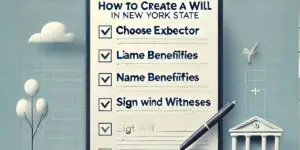Understanding who needs an estate plan and what it should cover is key to creating a plan that is right for you.
A properly crafted estate plan allows you, while you are still living, to ensure that your property will go to the people you want, in the way you want, and when you want. It permits you to save as much as possible on taxes, court costs and attorneys’ fees; and it affords the comfort that your loved ones can mourn your loss without being simultaneously burdened with unnecessary red tape and financial confusion.
Estate Planning
This is simply the process of arranging for an orderly transfer of your assets to the people you want to receive them, it involves identifying who you want to give your assets to and when, either in your life time or at death; but sometimes done after death).
Looking at Updated beneficiary designation forms as one Estate planning we all need where it forms on life insurance policies, 401(k) accounts and other assets will generally override any conflicting provisions within a will or trust. It’s essential to make sure all forms are checked and updated regularly, ideally on an annual basis.
Two Estate Planning Documents Clients Need for College-Bound Kids
1. Health Care Directive
For health care decisions, state law applies and most states have default statutes for who can make medical decisions on your behalf. However, it is not always the order you want. This can be problematic when children are out of state at school because they might not be familiar with that state’s laws. A health care POA is most important, as it authorizes someone else to make medical decisions on behalf of the child, and gives access to medical records in the event that the child is incapacitated or temporarily unable to make decisions for their self. This document is state-specific to where it will be used.
2. Durable Power of Attorney
Another option people are selecting as well, is a durable POA to make financial decisions on their child’s behalf. This is also state-specific. The financial POA can authorize the designated agent to deal with student loans and sort out tuition bills. Both documents are relatively inexpensive and quick to put in place. It’s a good idea for parents with kids heading back to college to have them.
5 Estate Planning Myth
1. My estate isn’t big enough to need planning.
It is true that if you have a small estate, you may not need a complicated will or trust, but even if you have only a few assets, your estate plan can direct where you want those assets to go. In addition, a will allows you to name a guardian for your young children. Estate planning isn’t just about the will, however. A thorough estate plan also includes a power of attorney and a health care proxy, both of which protect you while you’re still alive. A power of attorney allows you to appoint someone to handle your finances in the event that you are ever unable to do so yourself. A health care proxy appoints someone you trust to make medical decisions for you in the event of your incapacity.
2. I’m too young for an estate plan.
No one likes to think about death, but it is important to be prepared at any age. Unfortunately, accidents can happen to anyone. As described above, an estate plan not only allows you to dictate where your assets should go, it also allows you to name a guardian for young children and plan for incapacity.
3. My will takes care of everything.
A will is a legally-binding statement directing who will receive your property at your death. It also appoints a legal representative to carry out your wishes. However, the will covers only probate property. (Probate is the court process by which a deceased person’s property is passed to his or her heirs and people named in the will.) Many types of property or forms of ownership pass outside of probate. Jointly-owned property, property in trust, life insurance proceeds and property with a named beneficiary, such as IRAs or 401(k) plans, all pass outside of probate. A good plan should be designed to avoid probate, save on estate taxes, protect assets if you need to move into a nursing home, and appoint someone to act for you if you become disabled.
4. It is cheaper to create a will on my own.
It is tempting to try to save money by using a do-it-yourself online will service or just writing something up yourself, but these poorly drafted documents may only cost additional money in the end. It is impossible to know, without a legal education and years of experience, what the right legal solution is to any particular situation and what planning opportunities are available. If there is anything about a family situation that’s not commonplace, using a DIY estate planning program means taking a large risk that can affect one’s family for generations to come. And only an attorney can determine whether a particular situation qualifies as commonplace.
5. Once a plan is in place, I’m done.
Once you have a plan in place, you need to review it every few years or whenever you have major life changes. Circumstances change over time and your estate plan needs to keep up with these changes. Major changes that may affect your plan include getting married or divorced, having children, or experiencing an increase or decrease in assets. Even if you don’t have any major changes, you should review your plan periodically to make sure it still expresses your wishes.
Get help
If you would like to learn more about the documents you need in estate planning, any one of our estate planning attorneys would be happy to assist you.









